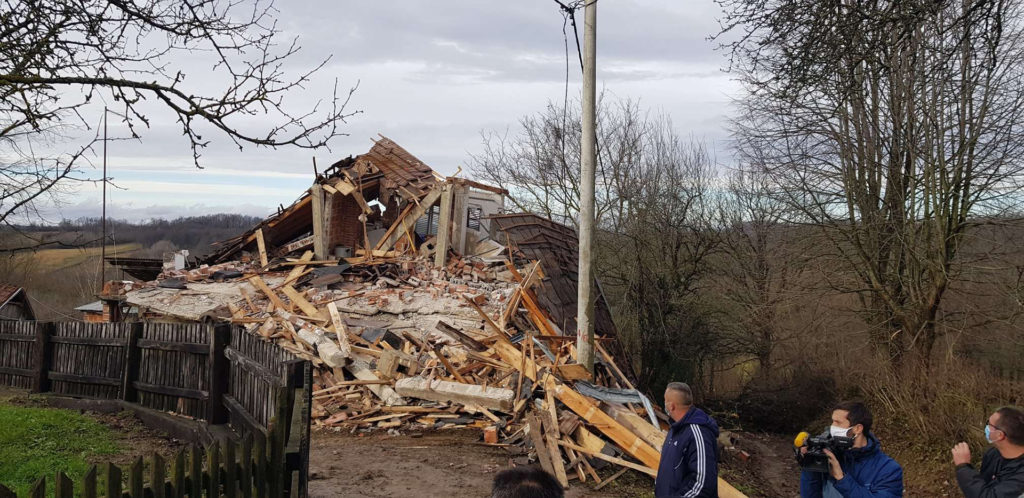
Croatia
International Medical Corps sent response teams to help people facing by conflict in the Balkans in the early 1990s, and has maintained an office and logistics hub in Split, Croatia, since 1993.
Our team—now numbering more than 130—has responded to major emergencies in the country, including flooding in 2014, an influx of refugees and migrants fleeing conflict in 2016, and two major earthquakes in 2020 that affected hundreds of thousands of people.
In 2019, International Medical Corps founded International Medical Corps Croatia as an independent, non-profit association, headquartered in Split. It operates in collaboration with International Medical Corps and International Medical Corps UK, sharing the same mission, vision and core values, as well as operational resources, for the implementation of program activities.

4.2 million
74/80
male/female
722,000
2015–2021
The Challenges
Our Response

Responding to Disasters
In 2014, the heaviest rains in more than a century sparked floods across the Balkans, affecting millions of people, causing thousands of landslides and prompting a landmine warning, as unexploded mines left over from the conflict of the 1990s were unearthed by the waters. International Medical Corps deployed experts in logistics as well as in water, sanitation and hygiene, as well as other experts to meet the healthcare, nutritional and hygiene needs of those affected by the floods.
In March 2020, a 5.5 magnitude earthquake struck Zagreb, the capital city, displacing tens of thousands of people and damaging healthcare infrastructure just as COVID-19 was spreading across the country. International Medical Corps donated thousands of items of personal protective equipment (PPE), such as masks and face shields, along with key medical equipment, including pulse oximeters, to help protect Croatian medical staff against the coronavirus.
In December 2020, Following a 6.4-magnitude earthquake that struck central Croatia, we immediately deployed an assessment team and dispatched PPE for healthcare providers and displaced citizens. We quickly delivered temporary healthcare facilities to local communities, as well as medical and laundry equipment and supplies to local hospitals and nursing homes, to ensure continuity of care, and even donated an ambulance to the Sisak-Moslavina County Institute for Emergency Medicine. International Medical Corps also worked with partners to distribute food, protective masks, first aid kits, hygiene materials and computers for elementary-school students.

Helping Refugees and Migrants
In 2016, with refugees and migrants flooding across borders in the Balkans toward Europe as they fled poverty, violence and political oppression in the Middle East and Northern Africa, International Medical Corps responded to the crisis, deploying 45 tons of winterization and relief supplies—including food, storage, clothing and blankets.
We also operated healthcare clinics in the region, to ensure that those at risk—often enduring dirty and crowded conditions—had access to basic medical services and care. We also deployed psychosocial specialists who helped people deal with the emotional as well as the physical toll of the journey they were facing.

